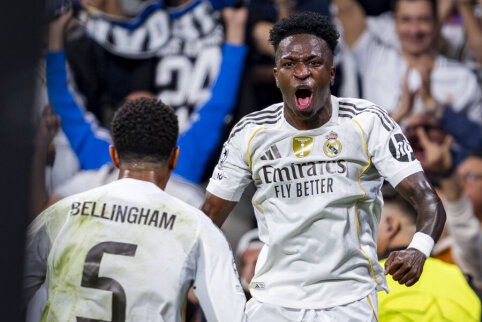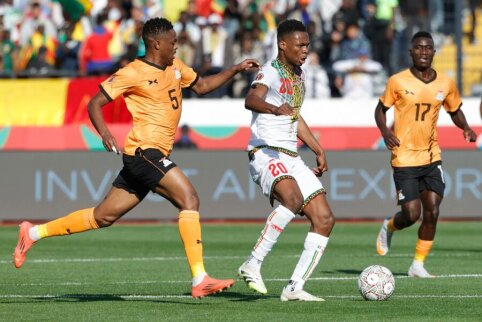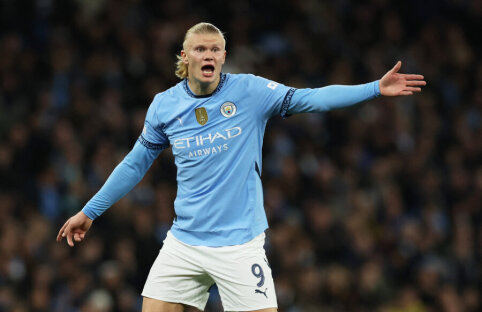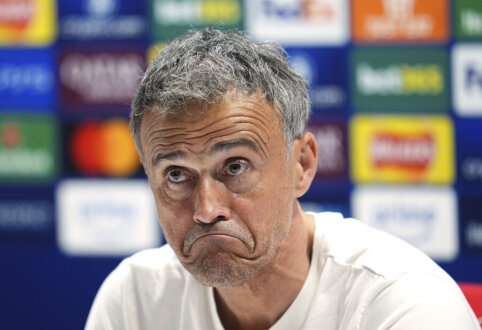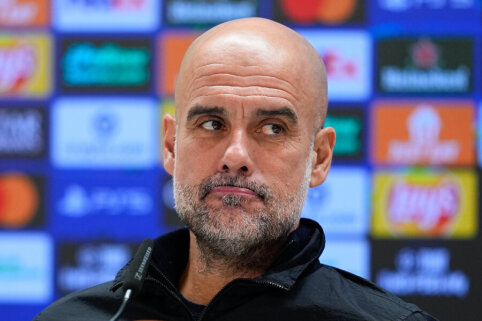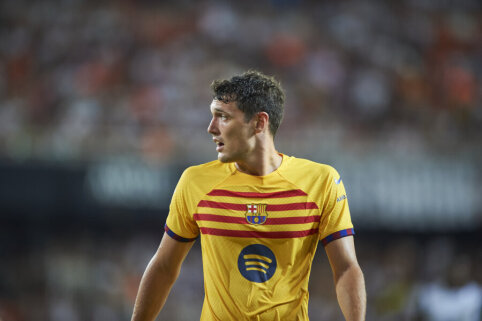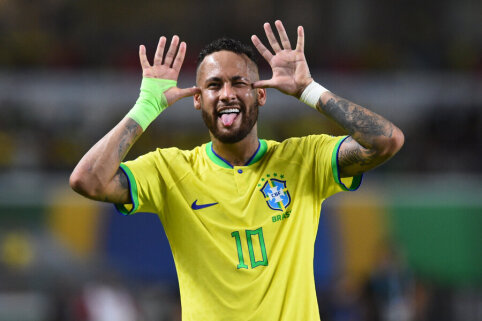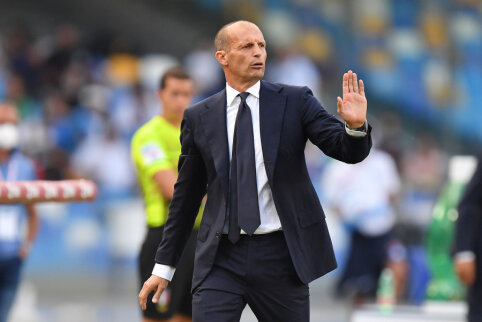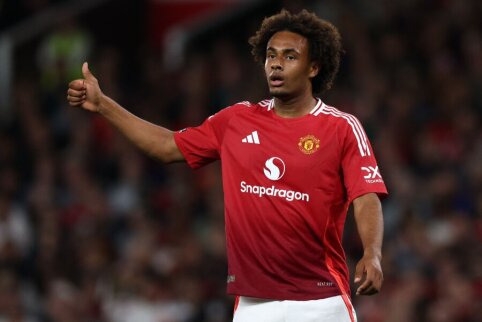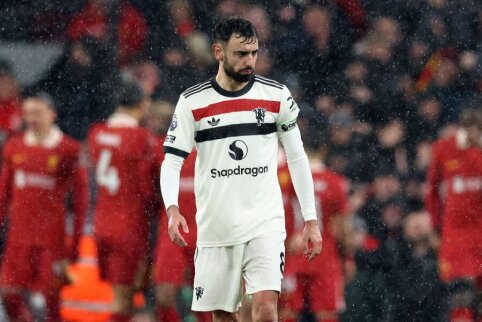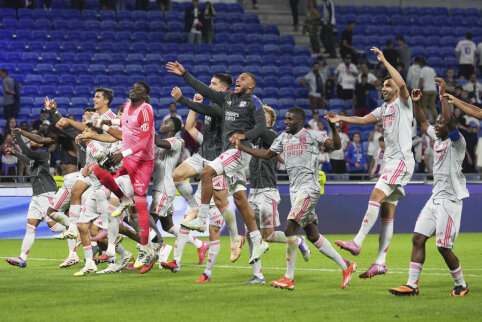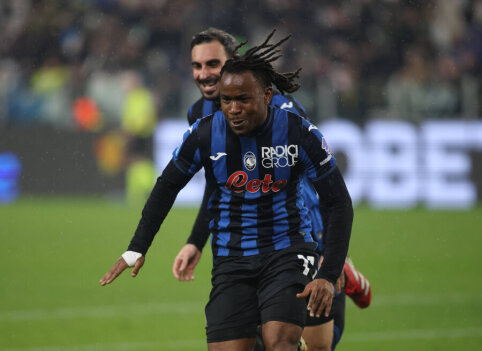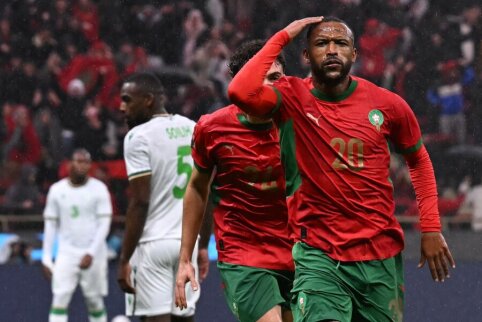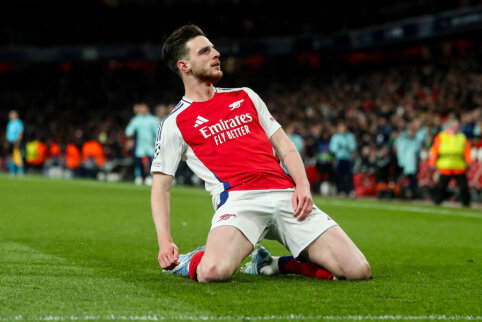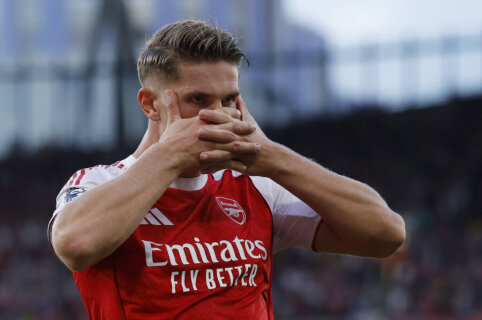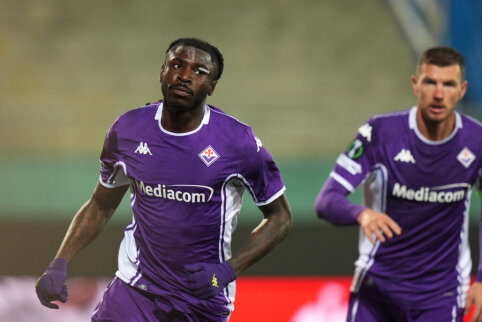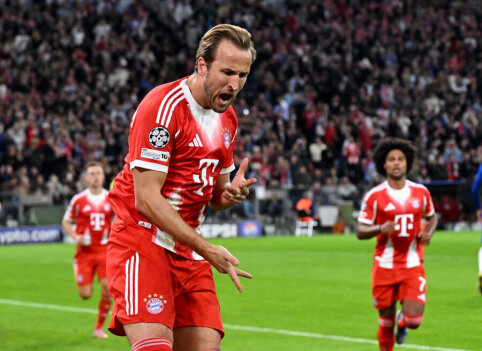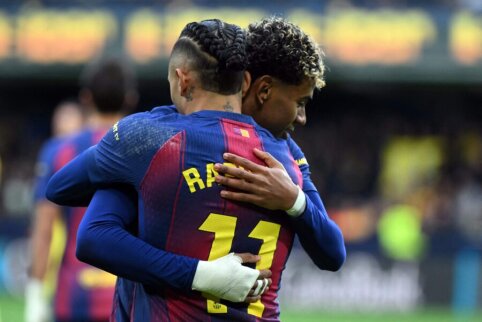 © EuroFootball.com
© EuroFootball.com
This September marked the beginning of the fifth season for the National Football Academy in Kaunas. While the most talented football players in the country spent their summer vacations a bit differently - with training camps and a busy schedule of competitions - in the autumn, like all students, they returned to school desks. The Academy itself came to life - kids, girls, and amateur teams flooded its fields. In the Academy's classrooms, coaches, referees, and sports teachers deepen their knowledge with various courses and training sessions. Starting its fifth academic year, the National Football Academy can already proudly boast of its achievements. Not only is it recognized as a prestigious school for young, talented football players throughout Europe, but it is also considered the country's technical development center for football. The Academy's leaders downplay their work and claim that since the establishment of the Academy, they have often had to learn from their mistakes. However, today they have achieved stability, and it is possible to think about expansion to the regions, with the highest recognition being the hard-earned trust of the Lithuanian sports community. An official of the Lithuanian Football Federation LFF.lt spoke with the director of the National Football Academy Raimondas Statkevicius. - How do you evaluate these four years of the Academy's activities? - We could divide them into four main stages. In the beginning, it was a time of searching - both for information on how to work, what model to choose, and for selecting and attracting young, talented football players to the academy. In the second stage, we checked the ways to follow - we made mistakes and learned from them. By the third stage, we can already talk about the stability of our activities. Now we are moving to the fourth - new plans and development. - You mentioned searching for a model, drawing on foreign experience, or starting everything from scratch? - We analyzed the best European examples and implemented them in our academy. Not everything was successful, as each country has its specifics and unique conditions. In many countries, similar academies are owned by clubs interested in finding and training talents. In Lithuania, the Lithuanian Football Federation invests the most in performing these functions. I can say that the current model of educating young football players is similar to the French one: a six-day work week (five days of training and one day of matches) and one day for rest. Children live in the academy all the time, and in school, a schedule of classes is arranged so that they can train twice a day. The academy offers both group and individual sessions. Youngsters are taken care of by qualified coaches, doctors, and caregivers. - You are starting the fifth season - what would you identify as the Academy's greatest achievement? - Recognition. First of all, we are valued by European clubs and academies. We cooperate, exchange experiences, trainers with organizations in Italy, England, Scotland, Germany, and other countries that train young football players. Five of our Academy alumni have already left and signed contracts with strong European clubs, while others are regularly invited for internships, tryouts. We hope that our children will improve in good clubs and significantly enhance the Lithuanian national team in the future. But particularly pleasant recognition in Lithuania. At the beginning, many looked at us cautiously, but now we are needed not only by the football community but also by representatives of other sports branches. Coaches from tennis, handball, ice hockey, athletics, and other sports come to us and ask how to start and adapt the Academy model to themselves. For now, we are the only ones with such a system of educating young talents, and we are happy to share our experience with others. - Does the Academy's activities consist only of educating young football talents? - It is one of the areas of activity where we started. Later, we realized that to achieve results, it is necessary to start influencing the training of football players from childhood. Our academy is designed to develop mastery - it is the highest level in the process of training a young football player. In order for him to reach that level and be able to take everything we can give, there must be a strong foundation. Therefore, we started training for coaches, sports teachers, providing methodological materials for the education of children of various ages. This year, we launched a new talent program - we travel around Lithuania and test children aged 10-12. For the most talented ones, we will create individual training programs and provide methodological suggestions to their coaches. Furthermore, we have one of the best sports bases in the region. Here not only professionals play football, but also amateurs, children train, and many mass football and city events take place. - Can one National Football Academy cover all these areas of football development? - Certainly not. Today we have already reached a certain limit. We are not able to accept all talented young people, we lose some of them. When creating our academy, it was planned to have at least five regional academies. The economic downturn halted these plans, but now we are planning to return to them. We are in talks with functioning sports schools in Panevezys and Siauliai. If the necessary technical base is created here, local clubs and the municipality will contribute, the LFF is ready to establish regional academy centers that would work according to our methodology. These regional academies should be a step towards young people coming to the National Academy. I also very much hope that the country's clubs will pay even more attention to children's and youth football. This should be the foundation of the entire football development, as it is in the best football countries. - What do you mean? - For example, I recently visited the English football club "Sunderland." Children here train in the academy from the youngest to adults. The largest number of athletes is in the youngest age group, and later the more talented children are chosen from there, who are directed towards professional sports - others continue to play sports in their spare time. Thus U-9, U-10 teams are formed, and so on. Children are supervised throughout the process. Ultimately, the most talented ones enter the so-called elite team, from which the path leads to the main team, which is currently competing in the English Premier League. A similar model is outlined in Lithuania's football strategy for the 2010-2020 period. I truly hope that in the near future, it will be implemented in all clubs. We already see the beginning in Gargzdai "Bangos," Vilnius "Zalgiris," Marijampole "Suduva." - There are many plans, but when can we expect results on the football field - after all, national teams are formed on the basis of Academy alumni? - We already see the first individual results: Lukas Lidakevicius represents "Barnsley," Deimantas Petravicius - "Notingham Forest" club in England, Aurimas Vilkaitis is in Rome's "Lazio" and Edvinas Girdvainis in "Calcio Padova" clubs in Italy, Martynas Dapkus - "Maccabi Haifa" in Israel. We hope that they will progress rapidly in these teams and return to Lithuania to strengthen the national team. Collective results will still need to be waited for. The European practice shows that the first results of such academies can be seen after 10 years - we are halfway there. - At present, the national team is ripe for generational change. Is it realistic that the Academy alumni will be the new "golden" generation? - Yes, these changes are happening in our national team. The old-timers have been playing in the team for about a decade - that's a lot. Every year, 2-3 young players should join the team, who should learn and take over the role of the old-timers. We have such players, but they are still very young. Unfortunately, we have a "gap" - the generation of players that we could gradually integrate into the national team has not yet grown. We have an almost "empty" decade. Therefore, the situation is such that young people cannot fully take over the role of the outgoing generation. There are examples in Europe where radical changes are made, and the national team is formed solely from youth. For example, the Slovaks did this. However, a lot depends on the national team coach. If he takes on such responsibility - everything is possible. Speaking of Academy alumni, they are currently aged 15 to 17. Now and then we occasionally include them in national team training camps. This gives them a huge incentive to improve. However, they are still very young. Nevertheless, if the national team coach aims to form the national team with a focus on young players - after five years, the Academy graduates could certainly join it. - What is the most immediate challenge facing the Academy? - First of all - the final stage of the 2013 European Youth (U-19) Football Championship, which will take place in Lithuania. The preparation for it has already begun. We will strive for our youth to show honorably among the strongest teams on the old continent. In addition, as I mentioned, we will focus on expanding into the regions. Further football development and results without the contribution of regional academies and clubs are hard to imagine.
